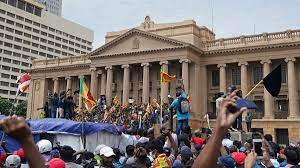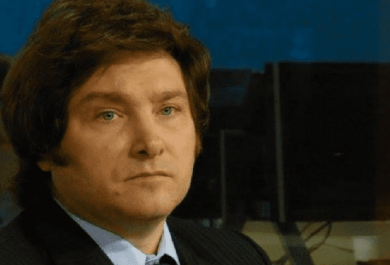Sri Lanka rarely captures global attention, but massive anti-government protests – spurred by their president’s globalist ‘Green New Deal’ agenda – have put Sri Lanka on center stage.
Summary
Sri Lanka rarely captures global attention, but massive anti-government protests – spurred by their president’s globalist ‘Green New Deal’ agenda – have put Sri Lanka on center stage.
- President Gotabaya Rajapaksa’s decision to switch the country to organic farming (which earned it a near-perfect ESG rating) helped bankrupt the country and kick off a foreign currency crisis and food and fuel shortages.
- Weeks of protests over the “economic calamity” culminated in protesters storming the presidential palace and Rajapaksa fleeing the country.
- Rajapaksa resigned his office after fleeing to Singapore, making his ally Ranil Wickremesignhe, the prime minister, the acting president.
- The parliament will now choose the new president between Wickremesignhe and a little-known lawmaker. Wickremesignhe is deeply unpopular with the protesters and is seen as a stand-in for Rajapaksa.
- Sri Lanka serves as a warning for other countries in the region. Pakistan, Bangladesh, Laos and others are also teetering on the edge of economic crisis.
![]()
- The New York Times reported on how the ordinary people of Sri Lanka are making do amid tremendous shortages of food and fuel.
- Vox explained how “Sri Lanka’s organic farming disaster” took shape. The country abruptly banned synthetic fertilizer in 2021, with the support of “many international groups.” Within six months, rice production dropped 20 percent.
- Politico downplayed the role of green policies in Sri Lanka’s collapse, and instead argued the return of thousands of overseas workers to Sri Lanka due to Covid putting intense strains on the economy.
![]()
- The Wall Street Journal reported the Sri Lankan economy is expected to contract by more than 6 percent as a result of the political unrest, and potential IMF relief has “stalled” with no guarantee the country will receive international assistance.
- National Review skewered “the green agenda” as “the most dangerous force in the world.” Sri Lanka, for example, achieved one of the highest ESG ratings in the world, at the small price of destroying its economy by enacting “the Green New Deal in miniature.”
- The Washington Examiner called Sri Lanka a prime example of “the real-world consequences of green extremism.” The toll of “shortsighted, self-defeating enviro-extremism” on developing countries can be immense. For example, food inflation in Sri Lanka skyrocketed to 80% in June.
© Dominic Moore, 2022






